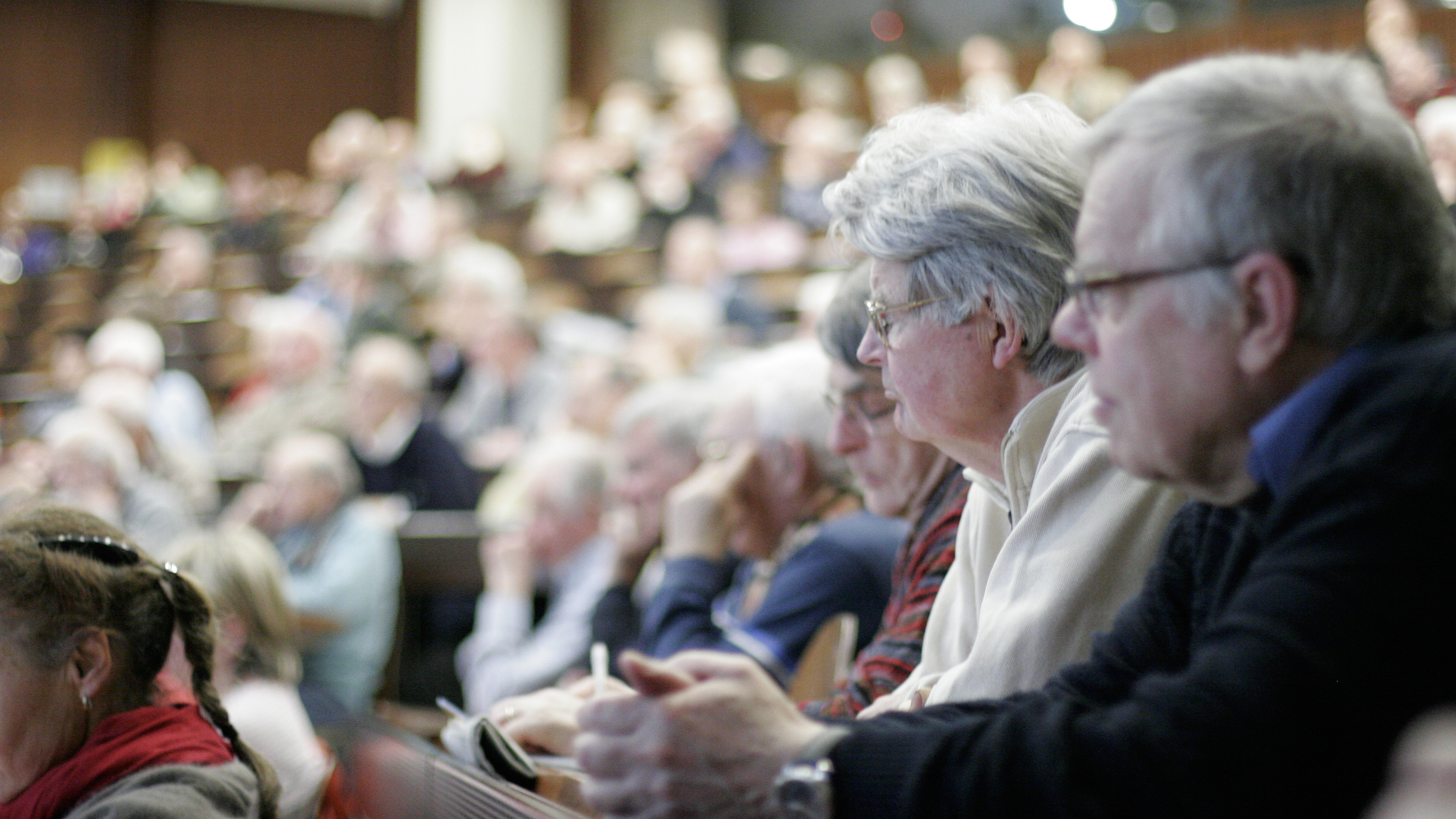Navigation auf uzh.ch
Navigation auf uzh.ch

The lecture halls at Irchel Campus aren’t only used by young students; older people interested in academia also regularly visit the premises. Around 2,000 men and women over 60 go to the Senior Citizens University to learn about the latest scientific findings from members of the University of Zurich and ETH Zurich’s teaching staff. The aim is to promote intellectual curiosity and openness among senior citizens, regardless of their educational background, but younger people may also attend the lectures.
On 27 February, the Spring Semester of the Senior Citizens University kicks off with a lecture about the importance of the journal Camera Work, first published in 1903, for photography. Besides social topics such as how to deal with failure, philosophical questions about morals and happiness, or the latest research findings about having a cheerful disposition, the Senior Citizens University also explores topics from the natural sciences: UZH professor of physics Laura Baudis investigates dark matter in the Milky Way, ETH chemist Prof. Roberto Marquardt explains how atoms move within molecules, and information technologist Dr. Jan Beutel researches permafrost on the Matterhorn.
In the field of medicine, the program for example explores the causes and remedies for burnout, the pros and cons of sport and strength training, as well as new therapeutic approaches to stroke recovery and heart disease. The Institute of Law, meanwhile, examines whether the Swiss juvenile criminal law system treats troubled youths too softly and looks at ways of amending Switzerland’s popular initiative system to avoid clashes with international law.
This medley of academic topics from UZH and ETH is greatly appreciated by the senior citizens attending the lectures. “On top of the good mix of topics, we want to put a stronger focus on promoting critical examination and participation in the future,” explains Prof. Mike Martin, President of the Senior Citizens University. “As society has developed, the intellectual requirements in old age have also increased: As a result of digitalization and open science policy, people now need to be able to critically reflect and assess research findings. This is what we want to help our visitors achieve – and indirectly also boost their mental fitness.”
In addition to excursions and sporting or cultural events, the Senior Citizens University also organizes special events focusing on specific topics as well as the opportunity to take part in certain research studies. Participants are to be given a greater role in selecting topics for the lectures in the future, which also motivates the academics giving the lectures. “As an instructor, I was thrilled by the enormous interest and constructive criticism,” says Mike Martin, whose research as UZH professor of gerontopsychology and gerontology also focuses on healthy aging.